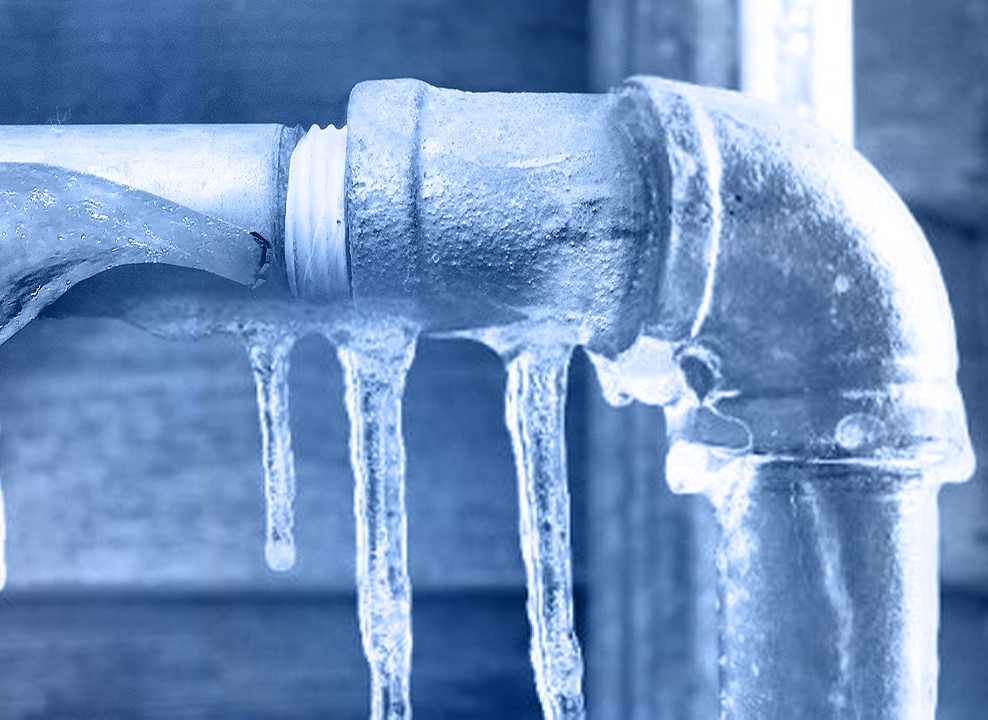Essential Tips for Preventing Frozen Plumbing in Winter Seasons
Essential Tips for Preventing Frozen Plumbing in Winter Seasons
Blog Article
The content listed below in relation to How to prepare your home plumbing for winter weather is quite stimulating. You should see for yourself.
:strip_icc()/snow-outdoor-faucet-pipes-4af65d1e5e904fb1aa7bf74071fe5d89.jpg)
Winter can ruin your plumbing, specifically by freezing pipes. Right here's how to stop it from happening and what to do if it does.
Intro
As temperatures decrease, the danger of frozen pipelines rises, possibly leading to expensive repair services and water damages. Comprehending exactly how to avoid frozen pipes is important for house owners in chilly climates.
Prevention Tips
Protecting prone pipes
Cover pipelines in insulation sleeves or use warmth tape to secure them from freezing temperatures. Concentrate on pipes in unheated or external areas of the home.
Home heating techniques
Maintain indoor areas effectively heated, specifically locations with pipes. Open cupboard doors to allow warm air to distribute around pipes under sinks.
Exactly how to recognize frozen pipelines
Search for reduced water flow from taps, uncommon odors or sounds from pipelines, and visible frost on subjected pipes.
Long-Term Solutions
Architectural adjustments
Consider rerouting pipes far from outside walls or unheated areas. Include additional insulation to attic rooms, cellars, and crawl spaces.
Updating insulation
Buy high-grade insulation for pipelines, attics, and walls. Proper insulation helps maintain constant temperature levels and minimizes the risk of icy pipelines.
Securing Outside Plumbing
Garden tubes and outside taps
Detach and drain yard hoses before winter season. Mount frost-proof faucets or cover outdoor faucets with insulated caps.
Recognizing Icy Pipelines
What causes pipes to ice up?
Pipelines freeze when exposed to temperatures listed below 32 ° F (0 ° C) for extended periods. As water inside the pipes ices up, it expands, taxing the pipeline walls and potentially causing them to burst.
Threats and damages
Frozen pipelines can cause supply of water disruptions, property damages, and expensive repair work. Burst pipes can flood homes and cause extensive structural damage.
Indications of Frozen Piping
Determining frozen pipelines early can stop them from rupturing.
What to Do If Your Pipes Freeze
Immediate activities to take
If you presume icy pipes, maintain taps open up to soothe stress as the ice melts. Utilize a hairdryer or towels taken in warm water to thaw pipelines gradually.
Conclusion
Protecting against icy pipes calls for proactive procedures and quick actions. By recognizing the causes, signs, and preventive measures, home owners can protect their pipes during winter.
Helpful Tips to Prevent Frozen Pipes this Winter
UNDERSTANDING THE BASICS: WHY PIPES FREEZE AND WHY IT’S A PROBLEM
Water freezing inside pipes is common during the winter months, but understanding why pipes freeze, and the potential problems it can cause is crucial in preventing such incidents. This section will delve into the basics of why pipes freeze and the associated problems that may arise.
THE SCIENCE BEHIND FROZEN PIPES
When water reaches freezing temperatures, it undergoes a physical transformation and solidifies into ice. This expansion of water as it freezes is the primary reason pipes can burst. As the water inside the pipe freezes, it expands, creating immense pressure on the walls. If the pressure becomes too great, the pipe can crack or rupture, leading to leaks and water damage.
FACTORS THAT CONTRIBUTE TO PIPE FREEZING
Low Temperatures: Extremely cold weather, especially below freezing, increases the risk of pipes freezing. Uninsulated or Poorly Insulated Pipes: Pipes located in unheated areas, such as basements, crawl spaces, or attics, are more prone to freezing. Insufficient insulation or lack of insulation altogether exacerbates the problem. Exterior Wall Exposure: Pipes running along exterior walls are susceptible to freezing as they encounter colder temperatures outside. Lack of Heating or Temperature Regulation: Inadequate heating or inconsistent temperature control in your home can contribute to frozen pipes. PROBLEMS CAUSED BY FROZEN PIPES
- Pipe Bursting: As mentioned earlier, the expansion of water as it freezes can cause pipes to burst, resulting in significant water damage.
- Water Damage: When pipes burst, it can lead to flooding and water damage to your property, including walls, ceilings, flooring, and personal belongings.
- Structural Damage: Prolonged exposure to water from burst pipes can compromise the structural integrity of your home, leading to costly repairs.
- Mold and Mildew Growth: Excess moisture from water damage can create a favorable environment for mold and mildew growth, posing health risks to occupants.
- Disrupted Water Supply: Frozen pipes can also result in a complete or partial loss of water supply until the issue is resolved.
WHY CERTAIN PIPES ARE MORE PRONE TO FREEZING
- Location: Pipes located in unheated or poorly insulated areas, such as basements, crawl spaces, attics, or exterior walls, are at higher risk of freezing.
- Exterior Pipes: Outdoor pipes, such as those used for irrigation or exposed plumbing, are particularly vulnerable to freezing as they are directly exposed to the elements.
- Supply Lines: Pipes that carry water from the main water supply into your home, including the main water line, are critical to protect as freezing in these lines can affect your entire plumbing system.
- Underground Pipes: Pipes buried underground, such as those connected to sprinkler systems or outdoor faucets, can be susceptible to freezing if not properly insulated.
https://busybusy.com/blog/helpful-tips-to-prevent-frozen-pipes-this-winter/

Hopefully you enjoyed reading our article on Helpful Tips to Prevent Frozen Pipes this Winter. Many thanks for finding the time to read our short article. Sharing is good. You just don't know, you might be helping someone out. Thanks a bunch for being here. Come back soon.
Book Inspection Report this page